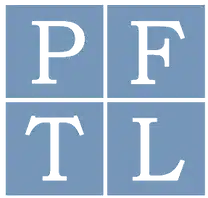How we begin:
Treyz has over 13 years of experience in leadership training, coaching, brainstorming sessions and facilitating small group work. Receiving inquiries via email, we typically have an online meeting or call to follow up to discuss ideas and concepts related to the scope of work. After this, we restate what we’ve heard, get clarity and agreement about goals and methods, email notes to follow up, with potential descriptions of trainings or exercises and then create dates and times for work to begin.

Sample Workshop for Government Leaders and Managers:
Emotional Intelligence at Work, using the StrengthsFinder for managing Teams more effectively
Studies show that emotions are how we make decisions. But if we never identify our feelings, we can’t understand why we make decisions. In the first part of this session, we’ll first look at how to identify our feelings in a meeting, and then do an exercise that will allow us to step out of our habitual modes and try on different ways of looking at an issue. This will help team members see what is truly driving their decisions, and how to both accept and step forward to embrace change.
After we’ve identified our feelings, we can understand how they come up at work, and what tasks create negative or positive feelings.
The second part of this session helps us get clarity on how we use our strengths at work. Have you ever wondered what would happen if we would focus on developing our natural talents, instead of putting most of our energy into fixing our weaknesses? Then this is for you!
Next we will dive into strengths-based development and explore the following questions:
Leadership Coaching Philosophical Approach
Mazarine Treyz works with leaders to coach self-awareness and impact through the Clifton StrengthsFinder, based on Gallup research over 30 years with 30 million people. The leadership starts by taking the StrengthsFinder assessment, and then we work together with their top five strengths to see how they typically communicate, what their values are, and how those mesh or clash with the values and communication styles of other board members or team members who they are trying to work with. This assists us in coaching self-awareness and impact, allowing people to see themselves neutrally through an outside, widely accepted evaluation. This assessment shows them the other kinds of folks and how to work better with them. We also use 1:1 coaching with the Adaptive Leadership model, guiding them to have productive discussions which allow for disagreement and a focus on mutual goals. In a group context, we use the De Bono 6 thinking hats to get board members and staff to see their usual cognitive biases and allow them to step out and try out other methods.
Read on to discover her work with government agencies on














